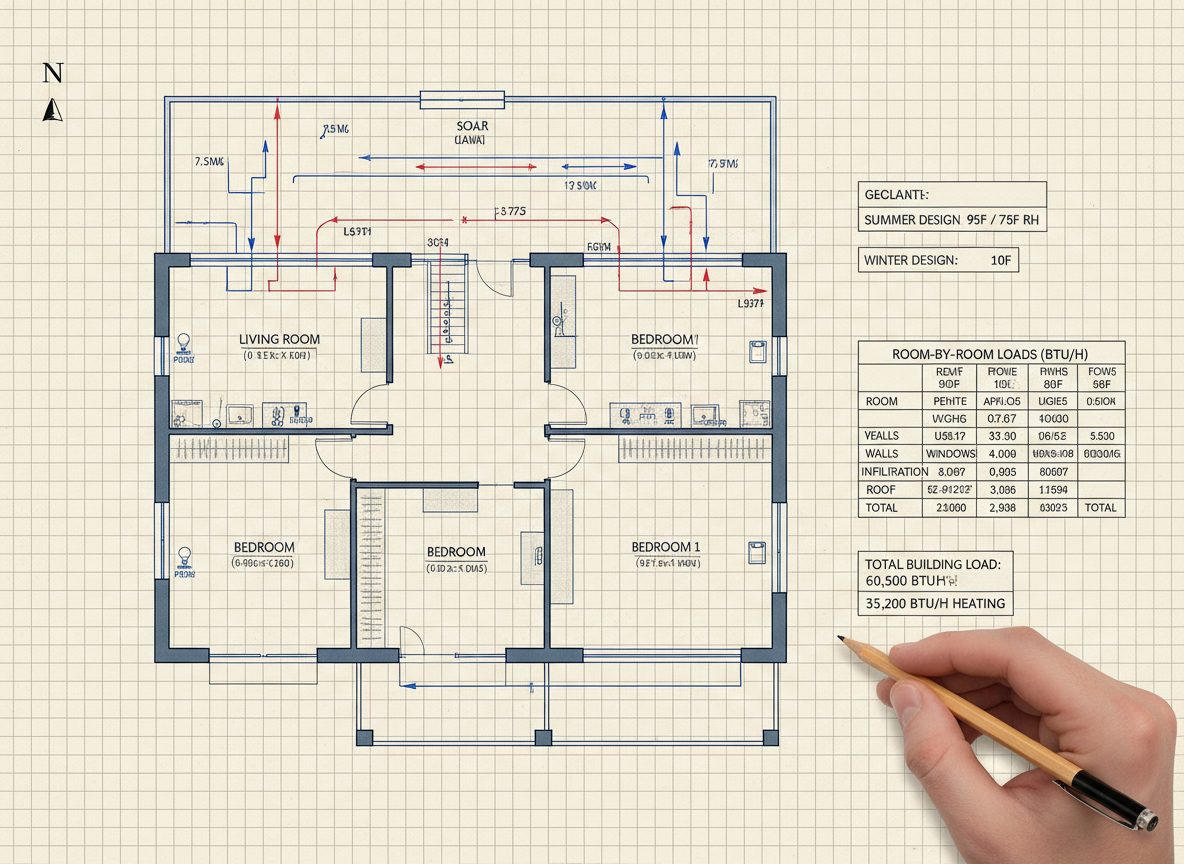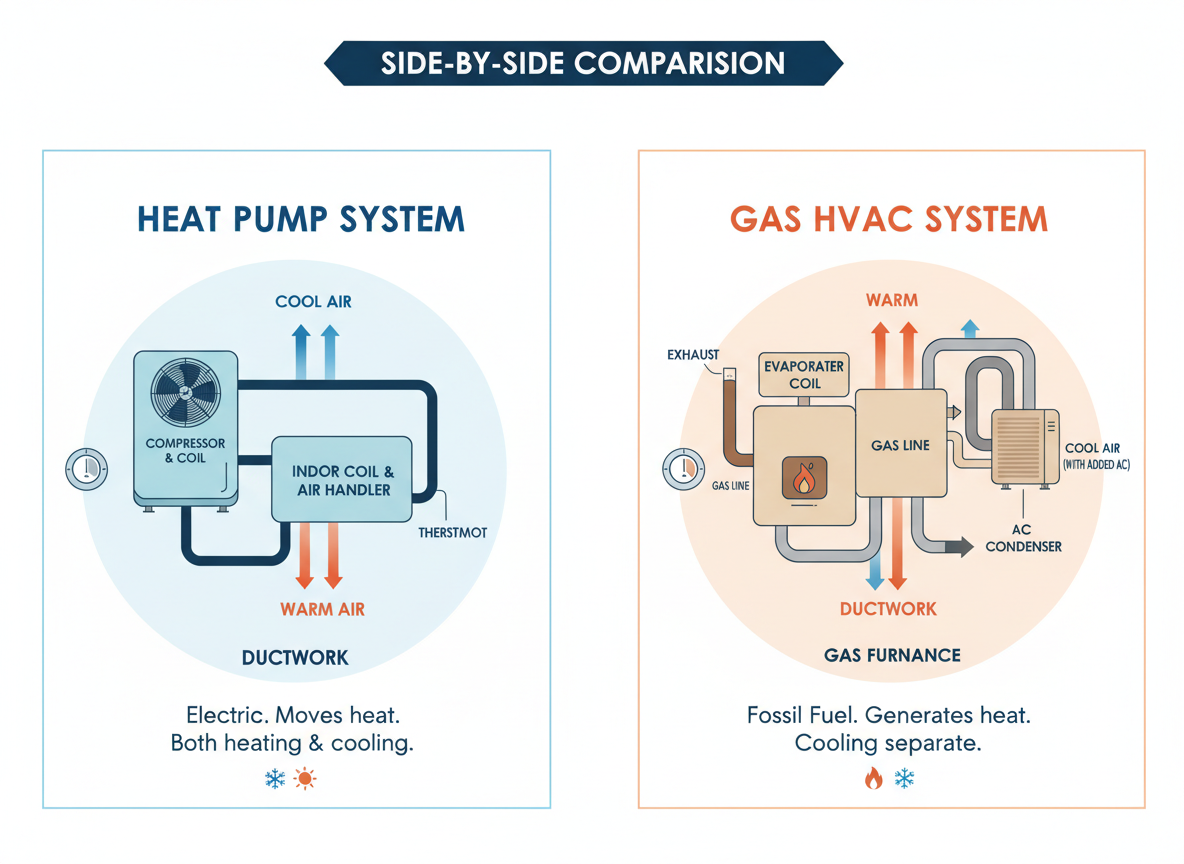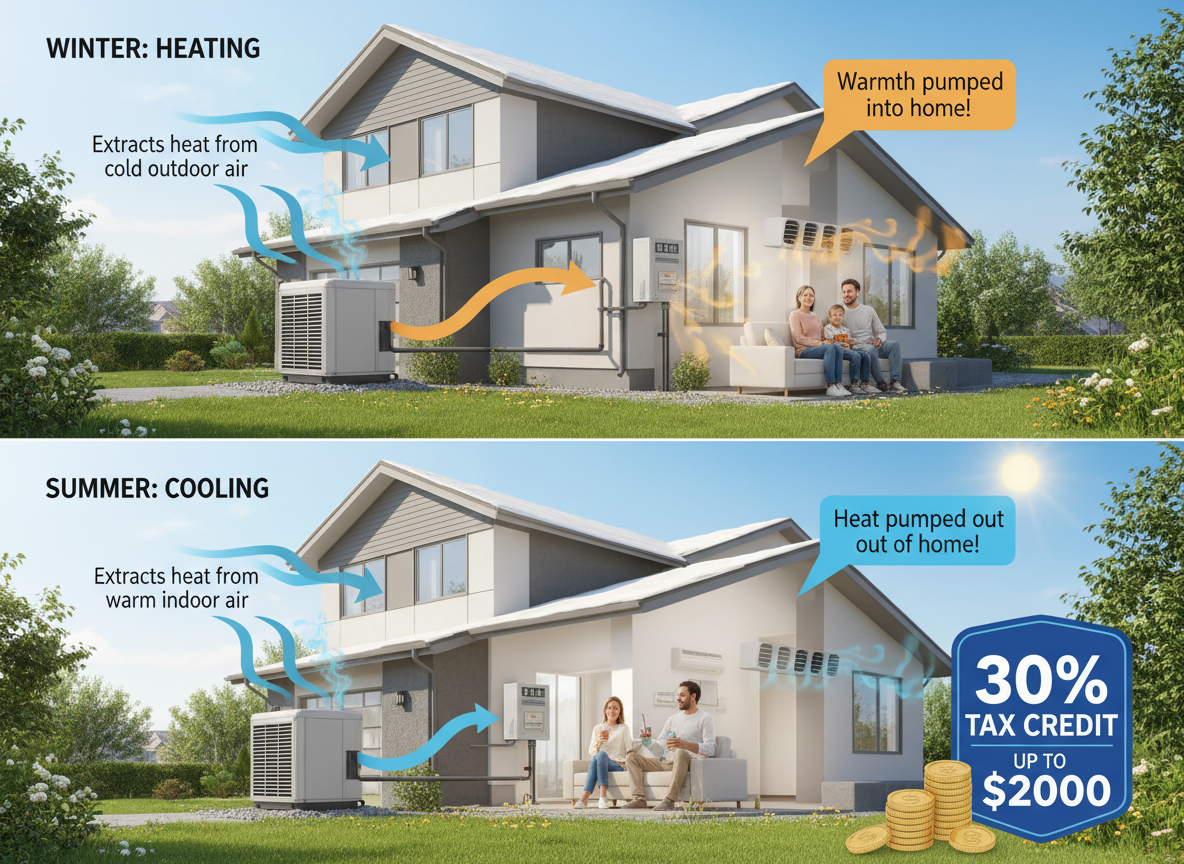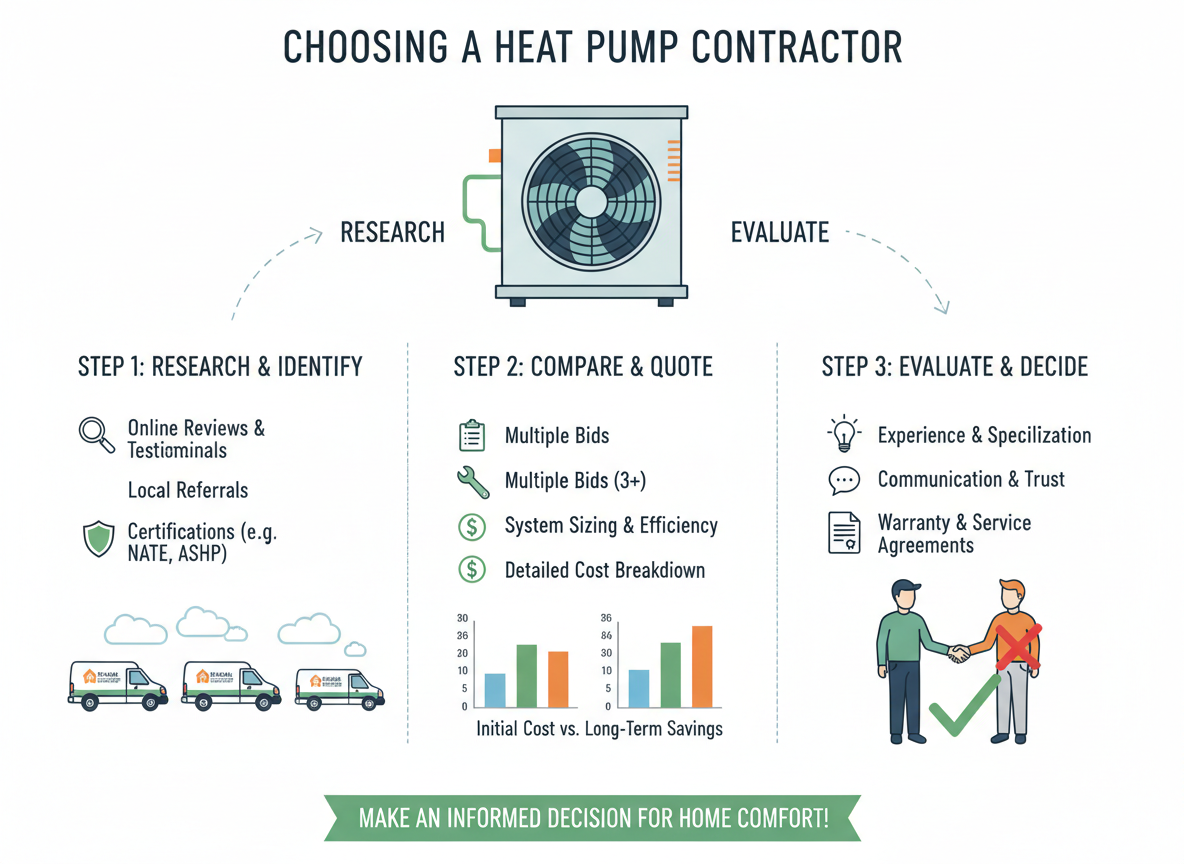
As the temperature gets lower more and more homes are using their furnaces. For many it could be the first time they are turning their furnace on this year. When you set your thermostat to heat mode, the typical process for a furnace is to use natural gas to heat the air and then use the blower to move the air through the ductwork and out the registers.
What happens if you find your furnace not blowing air? You may start thinking about how much money a furnace repair might cost, but there are many different reasons for your furnace not blowing air. Some are easier to fix than others, but they do require you to contact a professional for furnace repair. Read on to find out what could cause your furnace to to stop blowing any air.
Thermostat Issues
First you will want to ensure your thermostat is set correctly to heat mode and no one else in the home has turned it off. For battery operated thermostats only check if your thermostat is displaying any error messages with the battery. Check the batteries and replace them with new ones. This does not apply to thermostats powered by the furnace. If your thermostat is old, consider upgrading to a new programmable or smart thermostat to automate a heating schedule that works best for you.
Capacitor Issues
If your furnace is not blowing air, it may be attributed to issues with the capacitor. Capacitors can go bad at any time. They can either stop working completely or be weak and can be checked with a multi meter. The capacitor in a furnace plays a crucial role in providing the necessary electrical boost to start the motor and keep it running smoothly.
When the capacitor malfunctions or fails, it can disrupt the entire operation of the blower motor, leading to no airflow. This situation is often characterized by a furnace that might start up but fails to push warm air through the ducts. Capacitor problems can manifest as the motor struggling to turn on, making unusual noises, or shutting down prematurely.
Addressing capacitor issues promptly is essential to ensure proper airflow, efficient heating, and to prevent further damage to the furnace components. Regular HVAC maintenance and timely capacitor replacements as part of furnace repair are key measures in maintaining the functionality of your furnace and the comfort of your home.
Burned Blower Motor
The blower motor is a critical component responsible for circulating heated air throughout your home. Burned blower can be due to excessive dust leading the motor to overwork, overheat and burn out. The indoor blower motor has openings to allow for air circulation and if these holes get covered in dust it can lead to overheating. It can also be due to mechanical issues with bad bearings or electrical with bad winding.
When the motor burns out, it can result in a complete failure of the airflow system. Burned blower motors often exhibit signs such as strange noises, a lack of response when the furnace is turned on, or an inability to maintain consistent operation. Addressing a burned blower motor requires professional furnace repair. A technician can diagnose the issue, replace the damaged motor, and ensure that the furnace is operating at its full capacity. Regular maintenance and prompt attention to motor issues contribute to the longevity and reliable performance of your furnace. If you suspect a burned blower motor, it's advisable to seek professional HVAC services for furnace repair to assess and address the problem promptly.
Bad Control Board
The control board, also known as the circuit board, serves as the brain of the furnace, coordinating and regulating its various components. If the control board is faulty, it will not send the power to the motor to start, disrupting the normal sequence of operations, leading to no airflow. Signs of a bad control board include the furnace not responding to thermostat commands, failure to initiate the blower motor, or irregular cycling.
In the case of a malfunctioning control board, the system may struggle to start or fail to maintain a consistent flow of heated air. Depending on where you live and the furnace brand most equipment comes with a 5 or 10 year warranty. Addressing a bad control board requires professional furnace repair. Technicians can diagnose the issue, replace the faulty control board, and ensure that the furnace operates smoothly. Regular maintenance is crucial to detect and address potential control board problems early, preventing disruptions to the heating system.
Contact LA Heating and Air
We understand if you discover your furnace not blowing air you may feel alarmed. Take the time to check your thermostat and hopefully get your furnace back up and running quickly. If this does not solve the issue give us a call for help. You may call us or contact us online. Lack of routine maintenance can cause a lot of issues with your system, some of which could result in costly repair or replacement. At the very minimum you should service your AC once before summer, and your furnace once before winter. To help keep your system on a routine schedule, sign up for a bi-annual maintenance plan. We are here to ensure your furnace is running at its best and keeps you comfortable throughout the winter, give us a call today!
Furnace Not Blowing Air Related Posts:






















.png)














